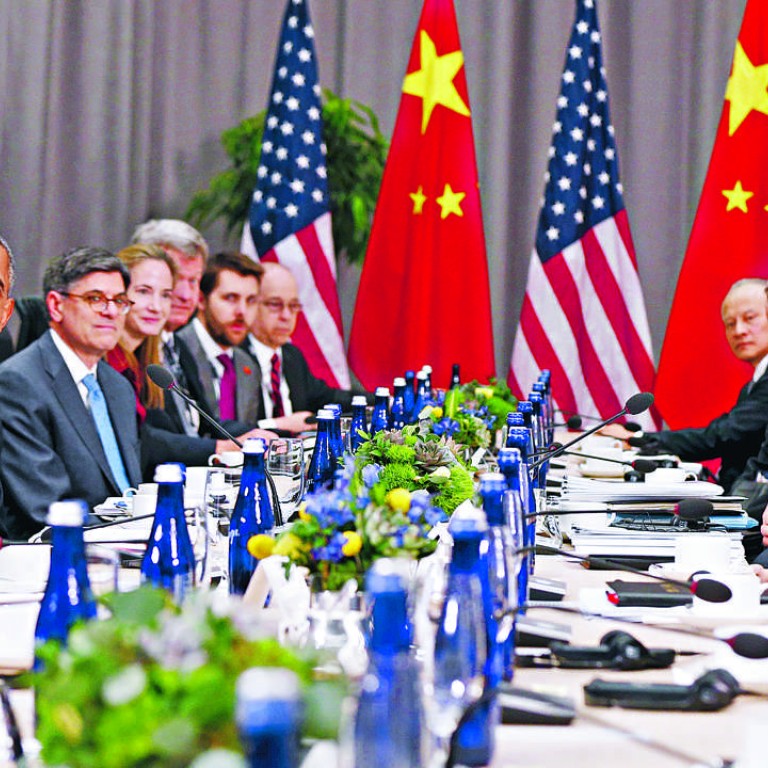
Xi and Obama find common ground on nuclear security, climate change
China and the United States have announced their first joint statement on nuclear security cooperation and a joint effort to consummate an international climate change agreement.
President Xi Jinping and his US counterpart Barack Obama met on the sidelines of the Nuclear Security Summit in Washington on Thursday, in a move analysts said was an effort to consolidate common ground while managing differences.
They agreed to work together to foil North Korea’s nuclear ambitions by “fully”, “strictly” and “vigilantly” carrying out a UN resolution on sanctions.
A common enemy: China, US pledge joint battle against nuclear terrorism in landmark declaration
“President Xi and I are both committed to the denuclearisation of the Korean peninsula,” Obama said.
On nuclear security, they agreed joint efforts to combat nuclear terrorism and established an annual bilateral dialogue.
The announcements came ahead of Xi’s address to the summit on China’s nuclear policies.
Xi and Obama said military exchanges and cybersecurity had also been on the agenda for their first meeting this year.
But the two sides showed little softening of their stances on disagreements including territorial disputes in the South China Sea.
China and the US accuse each other of militarising the region, one of the world’s busiest waterways, and have had close naval encounters in recent months.
“China will not accept any act under the disguise of freedom of navigation that violates our sovereignty and damages our security interests,” Xi said.
Scott Kennedy, deputy director of the Freeman Chair in China Studies at the Centre for Strategic & International Studies, said it was in nobody’s interest to see conflict between the US and China, and the two presidents had met to manage frictions.
As Chinese, South Korean Leaders discuss nuclear sanctions, Pyongyang fires a missile
With less than 10 months remaining for Obama in office, it was important for both sides to contain differences, strengthen common interests and lay a foundation for stable long-term relations, said Su Hao, professor at China Foreign Affairs University.
The joint statement on climate change reiterated one of the biggest successes in China-US
cooperation last year, which was a December agreement on climate change.
“The climate change issue is a perfect example of how China and the US work together to deal with global challenges,” Xi said.
Xi’s remarks showed there was a new area for cooperation between the two, said Jia Qingguo, head of the Peking University’s School of International Relations.
“The inclusion of nuclear security cooperation increases the positive forces in bilateral relations and expands the range of cooperation,” said Tao Wenzhao, a researcher at Chinese Academy of Social Sciences. China and the US shared interests on nuclear security and could cooperate in non-proliferation and ensuring the safety of energy facilities, Tao said.
He said a US ban on exports of some technologies to China, in place since 1990, remained the major hurdle for further nuclear technological cooperation.
Jia said as China continued its rise as a major power, it would have more and more common interests with the US. “When similarities are not recognised, it can cause conflict; but once they are recognised, they can grow into a highlight of cooperation,” he said.

